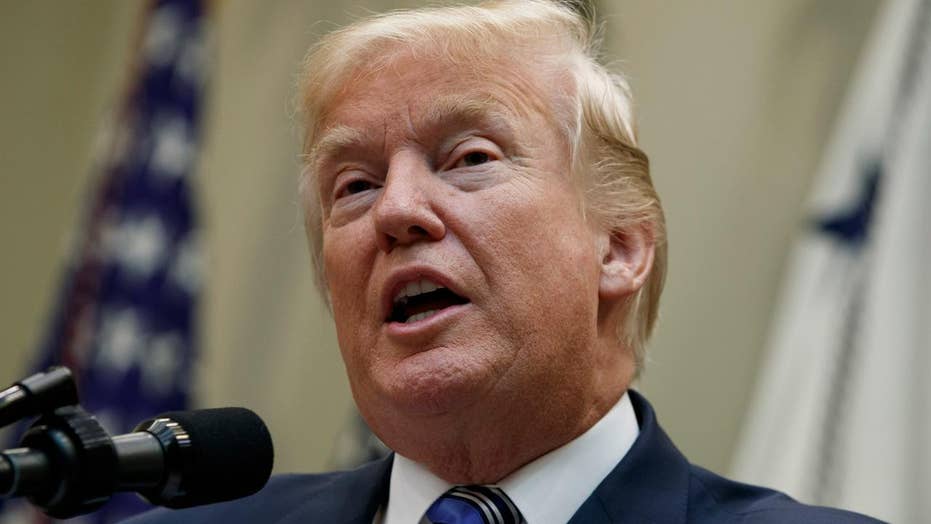Transgender Athlete Ban: Minnesota And The Federal Government Clash

Table of Contents
Minnesota's Stance on Transgender Athlete Participation
Minnesota currently adopts a relatively inclusive approach to transgender athlete participation in school and collegiate sports. While specific legislation may not explicitly address all aspects, guidelines from the Minnesota State High School League (MSHSL) and the Minnesota Intercollegiate Athletics Conference (MIAC) generally allow transgender students to participate in sports consistent with their gender identity, often requiring hormone therapy guidelines to be met. These guidelines aim to balance inclusivity with competitive fairness.
Arguments in Favor of Inclusive Policies
Proponents of inclusive policies emphasize the importance of fostering a welcoming and supportive environment for transgender youth. They argue that excluding transgender athletes reinforces harmful stereotypes and can negatively impact their mental and emotional well-being.
- Improved Mental Health: Participation in sports can significantly boost self-esteem and confidence among transgender youth, contributing to improved mental health outcomes.
- Enhanced Social Integration: Inclusive sports programs facilitate social interaction and a sense of belonging, reducing feelings of isolation and promoting social integration.
- Promoting Diversity and Acceptance: Allowing transgender athletes to participate promotes a culture of diversity and acceptance, challenging societal norms and fostering inclusivity within sports.
Concerns Regarding Fair Competition
Conversely, concerns exist regarding the potential impact of transgender athletes on the fairness and competitiveness of sports. These concerns often center on perceived physiological advantages.
- Potential Physiological Advantages: Some argue that transgender women may retain certain physiological advantages compared to cisgender women, potentially impacting the competitive balance.
- Need for Equitable Competition: Maintaining fair and equitable competition for all athletes is paramount, requiring careful consideration of guidelines and regulations.
- Challenges in Creating Fair Guidelines: Developing fair and effective guidelines that address the complex interplay of biological factors and athletic performance remains a significant challenge.
The Federal Government's Position on a Transgender Athlete Ban
The federal government's position on transgender athlete participation is currently evolving and contentious. While there isn't a nationwide ban, the Trump administration introduced policies that limited the participation of transgender individuals in school sports based on assigned sex at birth. The Biden administration has since reversed some of these policies, but legal challenges and ongoing debate continue to shape the landscape. Key federal agencies involved include the Department of Education and the Department of Justice.
Arguments for Restricting Transgender Athlete Participation
Advocates for restricting transgender athlete participation often raise concerns about fair play and the preservation of sex-separated sports.
- Maintaining "Sex-Separated Sports": A core argument centers on maintaining the traditional structure of sex-separated sports, arguing that it is essential for preserving fair competition between biological males and females.
- Proposed Legislation and Regulations: Various proposed legislative actions at the state and federal levels aim to restrict or ban transgender athletes from competing in sports consistent with their gender identity. These often cite concerns about competitive fairness and biological differences.
Legal Challenges to Federal Policies
The federal government's policies regarding transgender athletes have faced significant legal challenges. Numerous lawsuits have been filed, challenging the constitutionality and fairness of restrictions on transgender participation.
- Key Cases and Their Status: The outcomes of these legal battles will significantly impact future policies and the landscape of transgender athlete participation in sports nationwide. The ongoing litigation highlights the complex legal and constitutional issues involved.
The Legal Battleground: Federal vs. State Authority
The conflict between federal and state authorities on transgender athlete participation raises complex constitutional questions about the balance of power. States like Minnesota, with their own inclusive policies, are directly challenging the federal government's authority in this area.
The Role of Title IX
Title IX of the Education Amendments of 1972 prohibits sex-based discrimination in educational programs receiving federal funding. The application of Title IX to transgender athletes is a key area of legal contention, with ongoing debates about whether excluding transgender athletes constitutes sex discrimination.
Potential Implications for Other States
The outcome of the legal battle between Minnesota and the federal government will undoubtedly influence policies and legal challenges in other states. Many states are grappling with similar issues, creating a patchwork of regulations across the nation.
- Other States with Similar Debates: Several states are already engaged in similar debates, with ongoing legislative efforts to restrict or ban transgender athlete participation. These efforts often lead to further legal challenges, highlighting the national significance of this conflict.
Conclusion
The clash between Minnesota and the federal government over a transgender athlete ban exemplifies a deeply complex issue with significant implications for athletes, educational institutions, and the broader societal understanding of gender identity and fairness in sports. The legal challenges, ethical considerations, and ongoing policy debates surrounding the transgender athlete ban require careful consideration and thoughtful dialogue. Further research and a commitment to inclusive yet fair policies are crucial to navigating this evolving landscape. To stay updated on the latest developments in this critical discussion, continue following news and analysis on the transgender athlete ban and related legislation.

Featured Posts
-
 Do Film Tax Credits Work A Minnesota Case Study
Apr 29, 2025
Do Film Tax Credits Work A Minnesota Case Study
Apr 29, 2025 -
 Fn Abwzby Brnamj Fealyat 19 Nwfmbr
Apr 29, 2025
Fn Abwzby Brnamj Fealyat 19 Nwfmbr
Apr 29, 2025 -
 Minnesota Film Production The Impact Of Tax Credits
Apr 29, 2025
Minnesota Film Production The Impact Of Tax Credits
Apr 29, 2025 -
 Nba Fines Anthony Edwards 50 000 For Vulgar Comment To Fan
Apr 29, 2025
Nba Fines Anthony Edwards 50 000 For Vulgar Comment To Fan
Apr 29, 2025 -
 Federal Government Challenges Minnesotas Stance On Transgender Athletes
Apr 29, 2025
Federal Government Challenges Minnesotas Stance On Transgender Athletes
Apr 29, 2025
